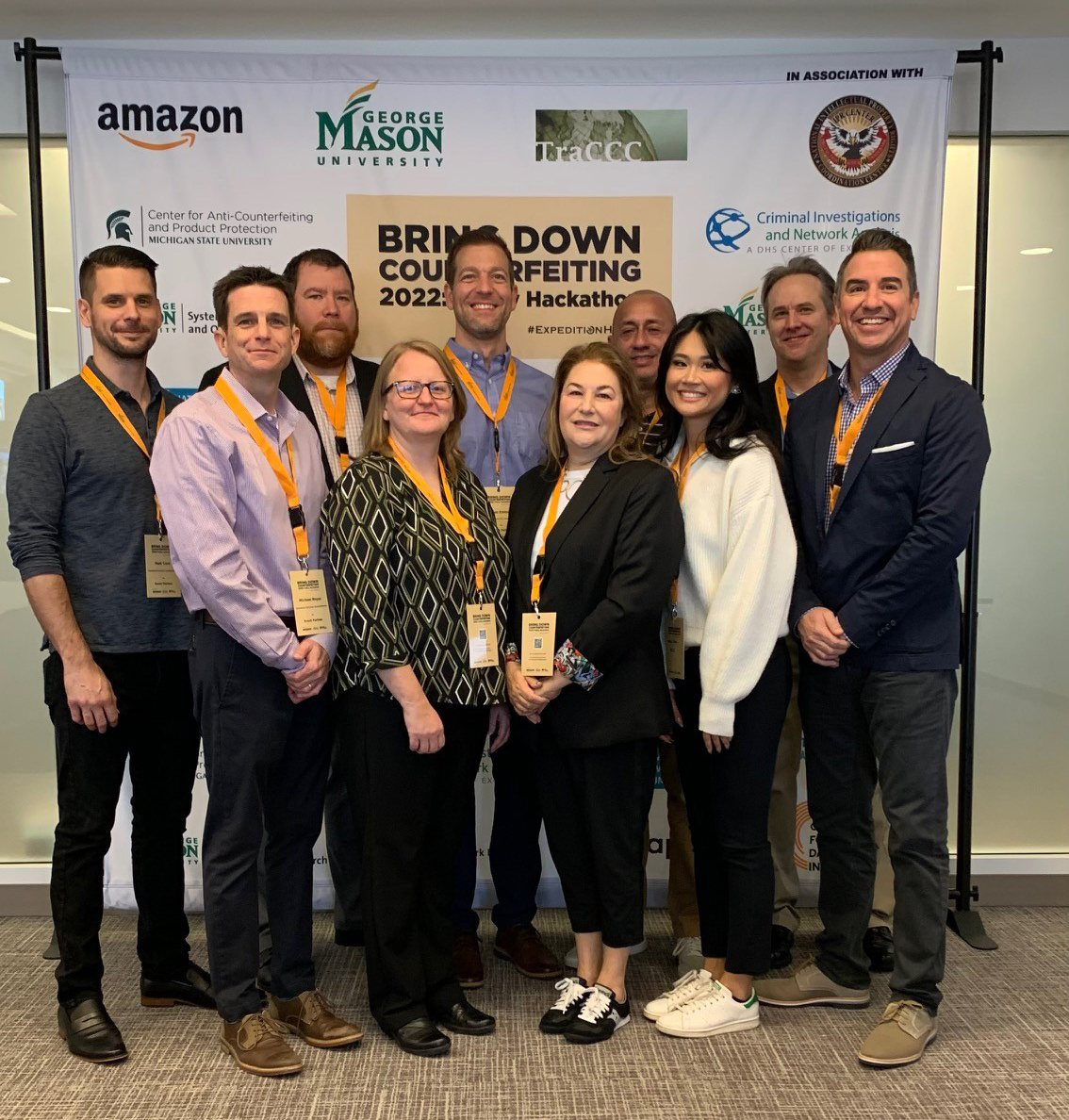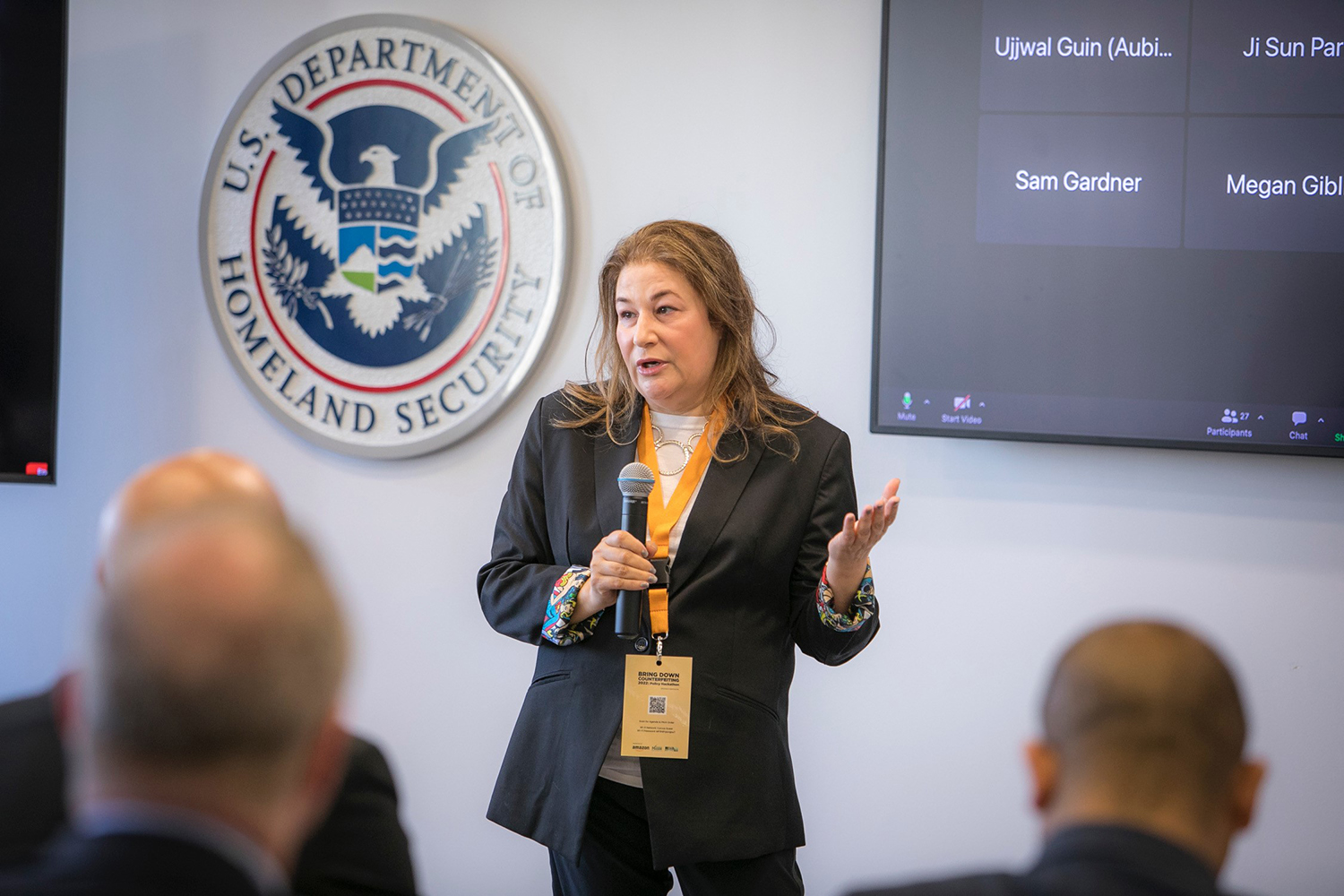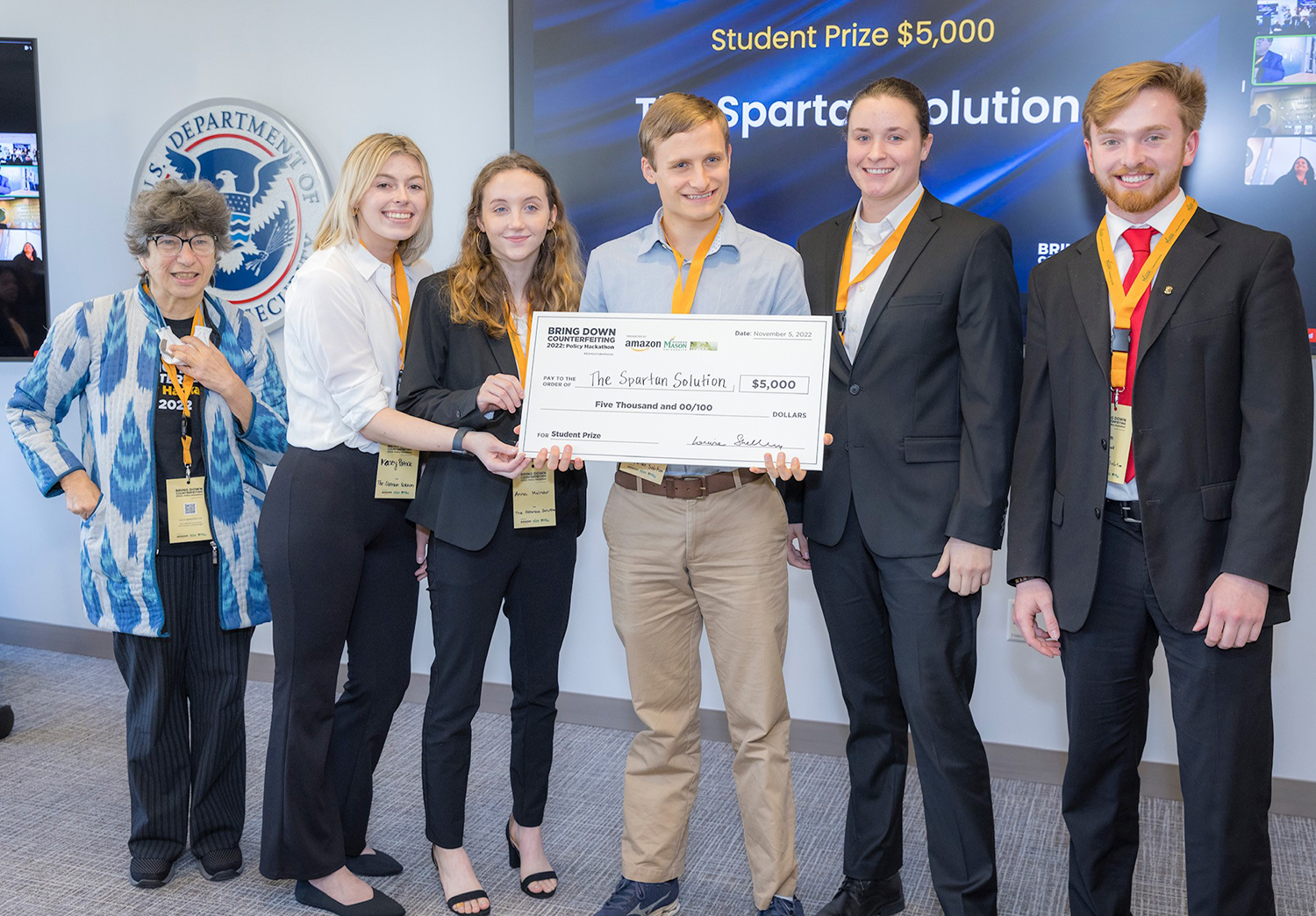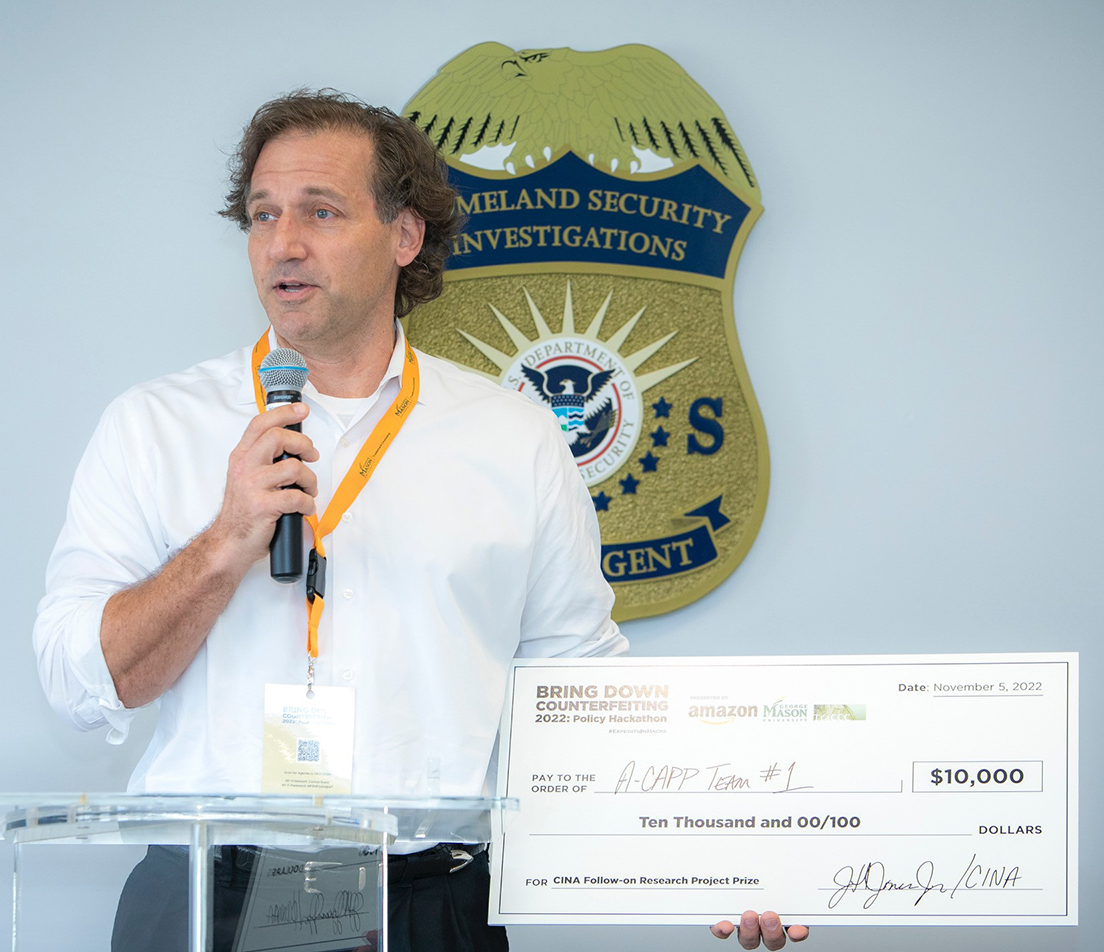Archived Content
In an effort to keep ICE.gov current, the archive contains content from a previous administration or is otherwise outdated. This information is archived and not reflective of current practice.
George Mason University hackathon winners unveil solutions to fight global counterfeiting
FAIRFAX, Va. – George Mason University’s Terrorism, Transnational Crime and Corruption Center (TraCCC) announced the winners of the 2022 Bring Down Counterfeiting Public Policy Hackathon, held Nov. 5 at the Homeland Security Investigations Innovation Lab in Arlington. The event challenged teams from U.S. and international academic institutions, companies, and other affiliations to develop innovative ideas to improve public-private collaborations against the industry-wide global challenge of counterfeiting.
For more than two decades, the National Intellectual Property Rights Coordination Center (IPR Center), working collaboratively with industry and brand owners, has led the effort in the government's response to prevent intellectual property theft, and has played a significant role policing the sale and distribution of counterfeit goods on websites, social media, and eCommerce marketplaces.
Team Hypercube, one of 11 teams competing in the final, earned the $20,000 first prize for its concept of a national counterfeiting index through an AI-powered blockchain that would allow federal, state, and local law enforcement to share information, and consumers to verify the authenticity of a product through their phones.
Second place and $15,000 went to Team Nimbus, which included three college freshmen (two from George Mason and one from the University of Virginia) who proposed developing a Chrome extension to prevent the consumption of counterfeit medicine by focusing on counterfeit pharmacies.
Mason’s Criminal Investigations Network and Analysis Center sponsored a special $10,000 prize to fund follow-up research by A-Capp Team #1, which proposed producing a central database to help law enforcement and private businesses track individuals and factories that manufacture or sell counterfeit items.
The $5,000 student prize went to The Spartan Solution, which demonstrated a cipher-based solution to combat counterfeit listings on e-commerce sites before the listings reach consumers.
The crowd source prize of $2,000 went to Team G.I.N., which detailed creation of a network, accessible by a QR code, that will allow everyone the ability to distinguish between genuine and counterfeit goods.
“The hackathon is one of the many ways Mason is advancing our growing partnership with Amazon, which emphasizes real-world experiential learning initiatives,” Mason Provost Mark Ginsberg said. “It also reinforces Mason as an invaluable community asset and a trusted partner to help combat and solve our most pressing global challenges.”
Louise Shelley, TraCCC’s founder and director, said of the hackathon: “To me this was just a transformational moment in the way we’re approaching counterfeiting. There will be research opportunities as a result of this. There will be impacts on national policy. There will be public outreach for people to better understand the severity of this critical problem.”
The 11 teams that qualified for the hackathon finals represented the top submissions from a three-month-long policy hackathon in which participants were challenged to find ways to combat counterfeiting on e-commerce sites and the criminals that benefit from it.
An expert panel of judges scored the submissions based on potential impact, scalability, creativity, and design. Ideas that enhanced data sharing and operational collaboration among the private sector and state, local and federal law enforcement were given special consideration.
In developing the submissions, participants had access to experts and mentors from Amazon, law enforcement, tech and retail industries, academia, and government.
About TraCCC
The Terrorism and Transnational Crime and Corruption Center, a research center at George Mason University, is the first center in the United States devoted to understanding the links between terrorism, transnational crime, and corruption, as well as teaching, researching, training, and helping to formulate policy on these critical issues. TraCCC’s research is disseminated to the public through conferences, congressional testimony, TraCCC’s book series and other publications. Learn more at traccc.gmu.edu.
About George Mason
George Mason University is Virginia’s largest public research university. Located near Washington, D.C., Mason enrolls 39,000 students from 130 countries and all 50 states. Mason has grown rapidly over the past half-century and is recognized for its innovation and entrepreneurship, remarkable diversity, and commitment to accessibility. Learn more at gmu.edu.






